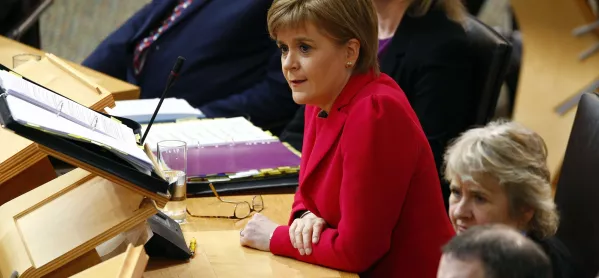A new “charter” giving Scottish headteachers more power will be published by the end of 2018.
First minister Nicola Sturgeon today announced plans to press ahead with a headteachers’ charter, which the government says will “put headteachers in control of important decisions that are fundamental to running their schools, such as curriculum, staffing and budgets”.
However, after announcing the 2018-19 programme of government, Ms Sturgeon faced criticism from Scottish Conservatives leader Ruth Davidson, who started her response by criticising the shelving of the Education Bill in June.
Ms Davidson said this was the “real let-down” of last year’s programme of government and that uncertainty over the future of the bill had created an “unholy mess”. Ms Sturgeon replied that using a legislative route to give heads more power would delay the changes by up to two years, adding: “What’s most important is that headteachers have the powers they need.”
Scottish Labour leader Richard Leonard attacked Ms Sturgeon for not mentioning teacher pay and not giving any indication that the government would backtrack on controversial national assessments for Scotland’s youngest pupils.
‘Nothing about improving teacher pay’
Larry Flanagan, general secretary of the EIS teaching union, said: “There were some very welcome statements in the first minister’s speech today, including a commitment to future additional investment in public services including education. The continuing commitment to tackling the impact of poverty on the education and life chances of many young people is extremely important and extremely welcome.”
He also found positives in “additional investment aimed at tackling school holiday hunger, enhanced support for students from low-income backgrounds and the planned integration of the UN Convention on the Rights of the Child into Scots law”.
Mr Flanagan added: “However, there was little in today’s statement regarding more resources for schools. Nothing about action to tackle the growing teacher shortage in many parts of the country. And nothing about a commitment to ensure a fair pay deal for Scotland’s teachers, following a decade of pay decline, in order to make teaching a more attractive career option for highly qualified graduates.”




